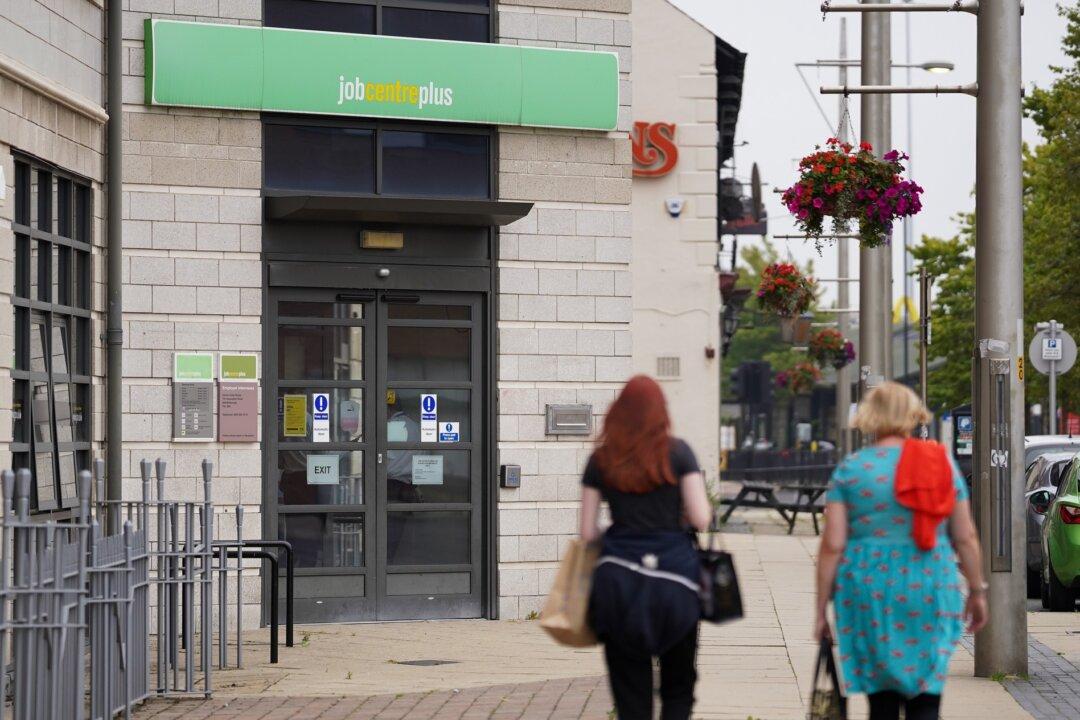A record 36 million people in Britain now live in households that receive more benefits from the state—including free education and health care—than they contribute in tax, according to a report by the think tank Civitas.
Civitas analysed data from the Office of National Statistics (ONS) from 2020/21 and found 54.2 percent of individuals were dependent on the state, although those figures would have included furlough payments and other benefits related to the COVID-19 pandemic lockdowns, which took place in Britain from March 2020.





